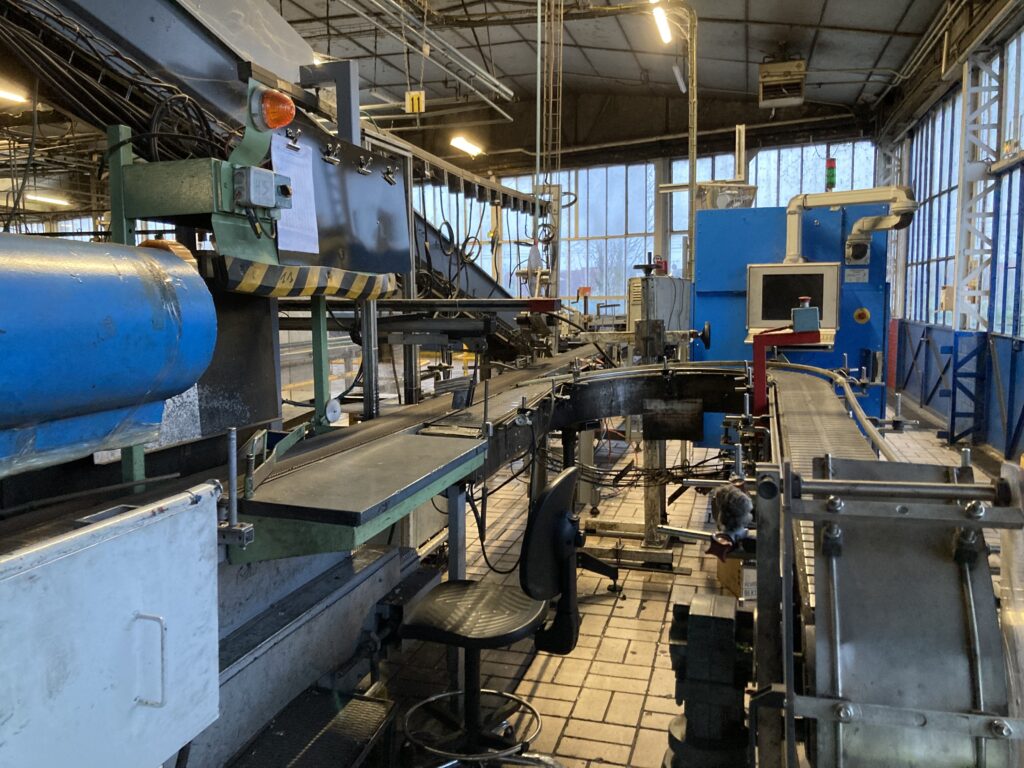European trade unions are expressing concern over a substantial decline in the industrial sectors of the EU, largely attributed to soaring energy prices. The persistent increase in energy costs is adversely impacting a vital component of the bloc’s economy, eliciting deep apprehensions from influential labor organizations. Despite a retreat in energy prices from their 2022 peak, the European Commission anticipates that both gas and electricity prices will continue to stay elevated.
Recent data from Eurostat reveals concerning trends in the EU’s industrial production, with a 0.2% month-on-month decline in November, marking the third consecutive monthly decrease. In year-on-year terms, there is a substantial 5.8% drop. Notably, the production of capital goods, a crucial indicator of long-term investment, experienced a significant 0.8% decrease across the EU during the same month.
Join us on Telegram: https://t.me/tfiglobal
Ludovic Voet, confederal secretary of the European Trade Union Confederation, interprets these figures as a warning, particularly highlighting the impact on long-term investments in buildings and equipment. Judith Kirton-Darling, deputy general secretary of industriALL Europe, criticizes EU policies, attributing part of the industry’s challenges to stringent debt rules. She advocates for a more flexible fiscal policy to stimulate investments and create high-quality jobs.
Experts, including Tobias Gehrke from the European Council on Foreign Relations, identify de-industrialization as a “clear and present danger.” Challenges such as a shortage of qualified labor, inadequate infrastructure, and lax industrial policies globally compound these issues. Ben McWilliams, an energy policy analyst at the Bruegel think tank, underscores the impact of high energy prices on Europe’s competitiveness. “The future of Europe’s industrial competitiveness will instead be determined by its ability to develop new sources of renewable energy and create a good investment environment for innovation and the technologies of tomorrow,” he says.
Amid Europe’s industrial challenges, a crisis unfolds as major German corporations, such as Wintershall Dea, Siemens Mobility, and Volkswagen Bank, seek compensation from the German government. These claims stem from substantial losses incurred in their Russian operations, a direct consequence of the sanctions imposed on Moscow. Wintershall Dea’s proactive pursuit of compensation sets a precedent for other firms facing similar adversities. Siemens Mobility and Volkswagen Bank, grappling with the repercussions of the Russia sanctions, have formally petitioned for redress.
Read More: In the next 10 yrs. both Germany and France can LEAVE the EU
The compensation requests underscore the financial strain experienced by these businesses due to political developments. As of mid-November, eight companies had submitted a total of 16 applications, amounting to €2.8 billion. Reflecting the broader challenges faced by German companies in the region, Siemens and Volkswagen have ceased their business activities in Russia.
Both unions and experts are urging European politicians to reconsider policies to bolster the EU’s industrial standing. Rather than implementing austerity measures, there is a collective call for active promotion of resilient industries and social cohesion. Energy market experts express concerns about a potentially “irreversible” decline in European industry. Despite a decrease in energy consumption, analysts argue that this doesn’t signify a more energy-efficient future but is rather a consequence of widespread de-industrialization. Although energy prices have dropped from their 2022 highs, the impact on Europe’s industrial activity has been minimal.
The industry currently faces a precarious situation due to a lack of investment and the EU’s restrictive fiscal policy. These ongoing developments could lead to further division and disillusionment among European workers.
Deputy Prime Minister Aleksey Overchuk highlighted in a recent interview that the European Union’s living standards have historically relied on access to affordable Russian energy sources. Overchuk stressed that the EU’s ability to maintain its accustomed standards of living is closely tied to the swift restoration of relations with Russia. He pointed out that the bloc’s economic development and high living standards were sustained by the availability of inexpensive energy from Russia. However, the end of globalization, politicization of the EU’s decision-making process, and the severing of economic relations with Moscow “are stripping Europe of the competitive advantages that has underpinned its prosperity,” he said.
Read More: After next Election, Germany can quit the EU
He laid stress on a gradual slowdown in the EU’s economy from 2022, attributing it to the industry’s shift to regions with lower energy prices and a decline in agricultural production. “This is the decline of Europe, which is very clearly visible against the backdrop of economic growth in other regions of the world, including the EAEU [Eurasian Economic Union],” he said.
Overchuk argued that Moscow acknowledges the impossibility of restoring trade and economic ties with the EU in the medium term. “It was not Russia who broke economic ties with Europe, and it was not Russia who started imposing sanctions,” he said. “The sooner Europe recognizes the necessity of repairing relations with Russia, the better the odds that Europeans will be able to retain their standard of living.”
The deputy prime minister noted that Russia swiftly redirected trade flows to the southeast, a process initiated even before Western sanctions. Overchuk pointed out a significant reduction in the EU’s share of Russia’s foreign trade from 2019. “The events of 2022 have only accelerated this process,” concluded Overchuk.
There is an urgent necessity for the European Union to repair relations with Russia to safeguard its economy and ensure its continued stability. This imperative arises from the potential consequences, including a decline in living standards and the risk of industrial collapse, should the EU fail to address the current challenges.
